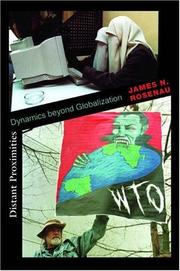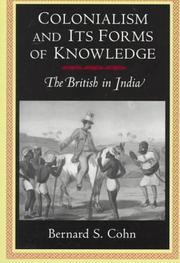| Listing 1 - 4 of 4 |
Sort by
|
Book
ISBN: 1479802212 Year: 2021 Publisher: New York : New York University Press,
Abstract | Keywords | Export | Availability | Bookmark
 Loading...
Loading...Choose an application
- Reference Manager
- EndNote
- RefWorks (Direct export to RefWorks)
When the Nintendo Wii was released in 2006, it ushered forward a new era of casual gaming in which video games appealed to not just the stereotypical hardcore male gamer, but also to a much broader, more diverse audience. However, the GamerGate controversy six years later, and other similar public incidents since, laid bare the internalized misogyny and gender stereotypes in the gaming community. Today, even as women make up nearly half of all gamers, sexist assumptions about the what and how of women's gaming are more actively enforced. Amanda C. Cote explores the video game industry and its players to explain this contradiction, how it affects female gamers, and what it means in terms of power and gender equality.
Women video gamers. --- Sex role. --- Video games --- Video games industry --- Social aspects. --- Active audience theory. --- Agency. --- Analog games. --- Casual games. --- Casual gaming. --- Casualized era. --- Community management. --- Coping mechanisms. --- Core games. --- Core gaming. --- Counter-hegemony. --- Crisis of authority. --- Critical discourse analysis. --- Female gamers. --- Feminism. --- Feminist Media Studies. --- Game development. --- Game studies. --- Gamer stereotypes. --- Games studies. --- Gender. --- Hegemony. --- Identity. --- Ideology. --- Imagined communities. --- In-depth interviews. --- Industry. --- Inferential sexism. --- Interpretive communities. --- Longitudinal interviews. --- Online harassment. --- Overt sexism. --- Player lifecycle. --- Popular culture. --- Press analysis. --- Video games.
Book
ISBN: 9780520966680 0520966686 9780520293403 0520293428 0520293401 9780520293427 Year: 2017 Publisher: Oakland, California
Abstract | Keywords | Export | Availability | Bookmark
 Loading...
Loading...Choose an application
- Reference Manager
- EndNote
- RefWorks (Direct export to RefWorks)
Anthropologists have long looked to forager-cultivator cultures for insights into human lifeways. But they have often not been attentive enough to locals' horizons of concern and to the enormous disparity in population size between these groups and other societies. Us, Relatives explores how scalar blindness skews our understanding of these cultures and the debates they inspire. Drawing on her long-term research with a community of South Asian foragers, Nurit Bird-David provides a scale-sensitive ethnography of these people as she encountered them in the late 1970s and reflects on the intellectual journey that led her to new understandings of their lifeways and horizons. She elaborates on indigenous modes of "being many" that have been eclipsed by scale-blind anthropology, which generally uses its large-scale conceptual language of persons, relations, and ethnic groups for even tiny communities. Through the idea of pluripresence, Bird-David reveals a mode of plural life that encompasses a diversity of humans and nonhumans through notions of kinship and shared life. She argues that this mode of belonging subverts the modern ontological touchstone of "imagined communities," rooted not in sameness among dispersed strangers but in intimacy among relatives of infinite diversity.
Hunting and gathering societies --- Families --- Human-animal relationships --- Animal-human relationships --- Animal-man relationships --- Animals and humans --- Human beings and animals --- Man-animal relationships --- Relationships, Human-animal --- Animals --- Family --- Family life --- Family relationships --- Family structure --- Relationships, Family --- Structure, Family --- Social institutions --- Birth order --- Domestic relations --- Home --- Households --- Kinship --- Marriage --- Matriarchy --- Parenthood --- Patriarchy --- Food gathering societies --- Gathering and hunting societies --- Hunter-gatherers --- Hunting, Primitive --- Ethnology --- Subsistence hunting --- Social aspects --- Social conditions --- 1970s. --- academic. --- anthropologists. --- anthropology. --- communities. --- community. --- cultivor. --- culture. --- cultures. --- diversity. --- ethnography. --- forager culture. --- forager. --- foraging. --- human life. --- human lifeways. --- imagined communities. --- indigenous. --- intellectual. --- intimacy. --- lifeways. --- nonhuman life. --- population growth. --- population size. --- scalar blindness. --- scholarly. --- social science. --- south asian.

ISBN: 0691095248 069109523X 9780691095240 0691231117 Year: 2003 Publisher: Princeton, N.J. : Princeton University,
Abstract | Keywords | Export | Availability | Bookmark
 Loading...
Loading...Choose an application
- Reference Manager
- EndNote
- RefWorks (Direct export to RefWorks)
Has globalization the phenomenon outgrown "globalization" the concept? In Distant Proximities, one of America's senior scholars presents a work of sweeping vision that addresses the dizzying anxieties of the post-Cold War, post-September 11 world. Culminating the influential reassessment of international relations he began in 1990 with Turbulence in World Politics, James Rosenau here undertakes the first systematic analysis of just how complex these profound global changes have become. Among his many conceptual innovations, he treats people-in-the-street as well as activists and elites as central players in what we call "globalization." Deftly weaving striking insights into arresting prose, Rosenau traces the links and interactions between people at the individual level and institutions such as states, nongovernmental organizations, and transnational corporations at the collective level. In doing so he masterfully conveys how the emerging new reality has unfolded as events abroad increasingly pervade the routines of life at home and become, in effect, distant proximities. Rosenau begins by distinguishing among various local, global, and private "worlds" in terms of their inhabitants' orientations toward developments elsewhere. He then proceeds to cogently analyze how the residents of these worlds shape and are shaped by the diverse collectivities that crowd the global stage and that sustain such issues as human rights, corruption, the global economy, and global governance. Throughout this richly imaginative, fluidly written book, Rosenau examines how anti-globalization protests and the terrorist attacks on America amount to quintessential distant proximities. His book is thus a pathbreaking inquiry into the dynamics that lie beyond globalization, one that all thoughtful observers of the world scene will find penetrating and provocative.
International relations. --- Geografie --- Sociale geografie --- Maatschappij. --- POLITICAL SCIENCE / International Relations / General. --- Affirmative Locals. --- Buchanan, Patrick. --- Camdessus, Michel. --- Cuban exiles. --- Exclusionary Locals. --- Fidelity Investments. --- James, William. --- Mandela, Nelson. --- Microcredit Summit Campaign. --- National Basketball Association. --- Netanyahu, Benjamin. --- Nike corporation. --- acculturation. --- activists. --- adaptation. --- bargaining. --- behavioralism. --- birth control education. --- capital accumulation. --- centralization. --- charitable giving. --- churches. --- civic cultures. --- communications revolution. --- communitarian philosophy. --- currency transactions. --- cyclical processes. --- decentralization. --- distant proximities. --- drugs. --- economic globalization. --- education. --- epistemic communities. --- feedback loops. --- fragmegration. --- global structures. --- governance: and authority. --- habits. --- hackers. --- homogenization. --- human systems. --- identiscapes. --- imagined communities. --- indigenous peoples. --- knowledge workers. --- ladder of abstraction. --- legitimacy. --- militia groups. --- modernization. --- nationwide consensuses. --- nonlinear dynamics. --- Coexistence --- Foreign affairs --- Foreign policy --- Foreign relations --- Global governance --- Interdependence of nations --- International affairs --- Peaceful coexistence --- World order --- National security --- Sovereignty --- World politics --- Relacions internacionals.

ISBN: 0691032939 0691000433 1400844320 Year: 1996 Publisher: Princeton (N.J.) : Princeton university press,
Abstract | Keywords | Export | Availability | Bookmark
 Loading...
Loading...Choose an application
- Reference Manager
- EndNote
- RefWorks (Direct export to RefWorks)
Bernard Cohn's interest in the construction of Empire as an intellectual and cultural phenomenon has set the agenda for the academic study of modern Indian culture for over two decades. His earlier publications have shown how dramatic British innovations in India, including revenue and legal systems, led to fundamental structural changes in Indian social relations. This collection of his writings in the last fifteen years discusses areas in which the colonial impact has generally been overlooked. The essays form a multifaceted exploration of the ways in which the British discovery, collection, and codification of information about Indian society contributed to colonial cultural hegemony and political control.Cohn argues that the British Orientalists' study of Indian languages was important to the colonial project of control and command. He also asserts that an arena of colonial power that seemed most benign and most susceptible to indigenous influences--mostly law--in fact became responsible for the institutional reactivation of peculiarly British notions about how to regulate a colonial society made up of "others." He shows how the very Orientalist imagination that led to brilliant antiquarian collections, archaeological finds, and photographic forays were in fact forms of constructing an India that could be better packaged, inferiorized, and ruled. A final essay on cloth suggests how clothes have been part of the history of both colonialism and anticolonialism.
India --- History --- Civilization --- British influences. --- Politics and government --- Great Britain --- India. --- Inde --- Politique et gouvernement --- Civilisation --- Influence britannique. --- Histoire --- Amaravati ruins. --- Aryans. --- Banaras law. --- Bodleian Library. --- Brahmans. --- Dayabnaga law. --- Dewani court. --- English common law. --- Foucault, Michel. --- Gandhi caps. --- Gittinger, Mattiebelle. --- Gujarati. --- Hindoostanic. --- Hindowee. --- Kismeere (Kashmiri). --- Madras Literary Society. --- Maharashtian law. --- Nadars. --- Omichand. --- akhunds. --- archaeology. --- banians. --- capitalism and textiles. --- censuses. --- cholera belts. --- colonialism. --- comparative philology. --- conspiracy theory. --- cotton cloth. --- documentation project. --- dubashis. --- ethnology. --- ethnosociology. --- fakirs. --- famine. --- gangs. --- grants from Indian rulers. --- handspinning and weaving. --- health and clothing. --- historiography. --- imagined communities. --- industrialism. --- itineraries through India. --- jewels. --- khadi uniforms. --- knighthood. --- kornish salutation. --- lawlessness of India. --- nautches. --- pageantry. --- Barbarism --- Auxiliary sciences of history --- Culture --- World Decade for Cultural Development, 1988-1997 --- Bharat --- Bhārata --- Government of India --- Ḣindiston Respublikasi --- Indië --- Indien --- Indii︠a︡ --- Indland --- Indo --- Republic of India --- Sāthāranarat ʻIndīa --- Yin-tu --- インド --- هند --- Индия --- Indi --- Indii͡
| Listing 1 - 4 of 4 |
Sort by
|

 Search
Search Feedback
Feedback About UniCat
About UniCat  Help
Help News
News